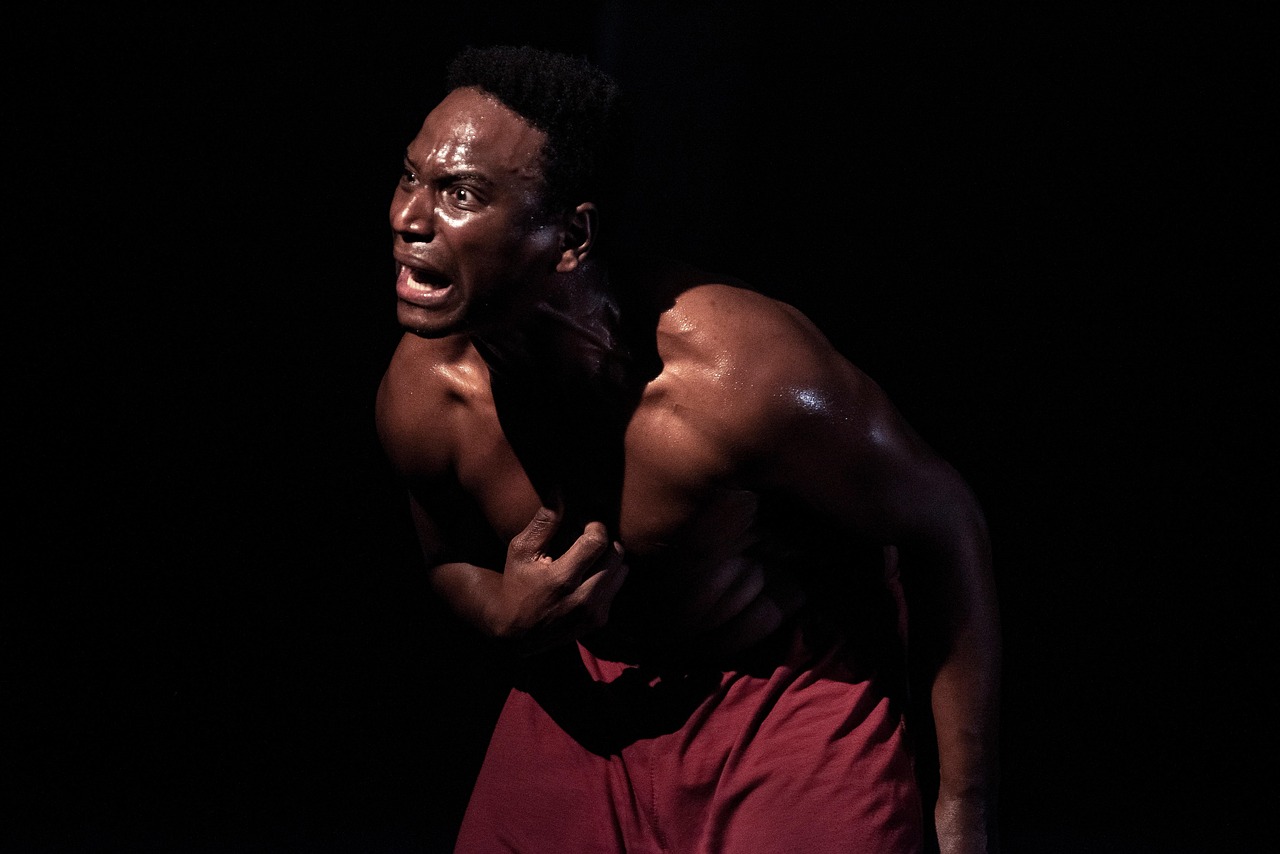Memorizing lines is one of those skills every actor has to master, yet it often feels like a mystery when you’re just starting out. Scripts pile up, rehearsal time shrinks, and somehow, you have to get every word locked into your brain while also bringing the character to life. I’ve had my share of panic attacks while staring at a page that refuses to stick. Over time, I’ve discovered that how to memorize lines faster and more effectively has less to do with talent and more to do with process.
The truth is, it doesn’t matter if you’re prepping for a Shakespeare play, a contemporary drama, or a short film with pages of dialogue. The real breakthrough comes when you find a rhythm,a system,that matches how your brain naturally works. Once I did, everything changed. I went from struggling with one scene to running full plays with confidence and clarity.
In this article, I’ll break down the techniques and habits that have helped me,and countless others,memorize lines not just faster, but with more depth and emotional truth.
Know the Scene Before the Words
Before trying to memorize anything, I make sure I fully understand the context. Who am I talking to? What do I want from them? What’s the emotional shift in the scene? When I grasp the scene’s purpose, the lines start to make more sense.
Memorization isn’t just about repeating words,it’s about why those words are said. When I know what’s happening beneath the surface, my brain links the language to intention, which makes recall much smoother.
Rather than drilling lines blindly, I study the arc of the moment. I identify the beats and the emotional changes. This gives the words a logical progression that’s easier to remember because they’re not floating in space,they’re tied to action.
Break the Script into Chunks
A big mistake I used to make was trying to memorize an entire scene at once. It’s overwhelming, and it usually leads to frustration. Now, I break the script into manageable chunks,one beat at a time, or even sentence by sentence.
I repeat each chunk out loud several times until I can say it without looking. Then I add the next piece. I call this the “building block” method. By stacking each new line on top of what I’ve already mastered, the script becomes a series of small victories rather than one massive challenge.
This technique works especially well when learning how to memorize lines faster and more effectively because it keeps progress visible and manageable.
Write the Lines by Hand
There’s something powerful about writing things down. I often take a pen and paper and copy out all my lines. It’s a physical, tactile experience that slows down my brain just enough to let the words settle in.
The act of writing reinforces visual memory and motor memory at the same time. I’ve found that when I write a scene out, I not only remember the words more clearly but also notice details I missed during reading,repetitions, rhythms, emotional turns.
Handwriting is one of my secret weapons. It may take a bit of extra time, but the payoff is significant. It gives me another path into the material.
Use a Repetition Method That Works for You
Some people learn by hearing, some by seeing, and others by doing. I use a combination. I repeat my lines aloud while pacing around my room, walking in circles, or acting out the scene physically. Repetition with movement anchors the words in my body, not just my brain.
I record myself reading both my lines and the cue lines, then listen to them like an audio play. Hearing the dialogue in rhythm helps me internalize timing and response. Sometimes I leave these recordings on while driving or walking so the lines sink in passively.
When I’m pressed for time, I use rapid-fire repetition: reading and speaking the lines ten times quickly, then testing myself without the script. This helps me lock in dialogue in high-pressure situations.
Run Lines With a Partner
Running lines with another actor,or even a willing friend,is one of the most helpful tools. It forces me to listen, react, and stay in the moment. Reading with someone helps prevent the robotic, monotone delivery that can creep in when I rehearse alone.
It also teaches timing. I start to feel where the natural pauses and interruptions are. And when my partner throws in unexpected intonations or reads differently than expected, it keeps me flexible, which is key for real performance.
Working with a partner makes the rehearsal process feel alive, and that engagement makes memorization stick.
Visualize the Scene as You Speak
I use visualization techniques to imagine the physical space where the scene happens,what the room looks like, where the other characters are standing, how I’m moving through it. As I say each line, I “see” the action unfold.
This mental movie creates a strong connection between dialogue and environment. It’s easier to recall lines when I can anchor them to imagined locations or actions. For example, I might tie one line to walking across the room and another to picking up a glass.
This method engages the visual part of the brain, creating multiple memory pathways. It’s not just about reciting,it’s about fully immersing myself in the world of the character.
Use Flashcards for Cues
When I’m struggling with cue lines, I write them on flashcards and quiz myself. On one side of the card, I write the line that comes right before mine. On the other, I write my own line.
This approach helps me practice responding quickly and instinctively. Flashcards are easy to carry around, and they allow me to review during idle moments,on the train, in waiting rooms, or during breaks.
They’re especially useful when learning multiple roles or preparing for an audition with lots of quick dialogue shifts.
Don’t Memorize Without Emotion
Lines without emotion are just words. I’ve noticed that when I try to memorize mechanically, I forget them faster. But when I tie each line to a feeling,anger, joy, fear, doubt,it becomes sticky.
Emotion anchors the words in my body. It also helps with intention and delivery. If I know why I’m saying something, the words come naturally. That’s why I work on both memory and performance at the same time.
This technique transforms cold memorization into something visceral. It speeds up recall and makes rehearsals much more meaningful.
Practice Out of Order
Once I’ve memorized a scene, I challenge myself by starting from the end and working backwards. This prevents my brain from relying on the flow of the scene alone and ensures I truly know the lines in isolation.
I’ll also jump randomly to a moment in the middle and see if I can pick it up from there. Practicing out of order tests my recall in a different way,and helps prepare for real-world situations where scenes are shot non-sequentially.
Learning how to memorize lines faster and more effectively requires flexibility, and this method keeps the material fresh and the mind sharp.
Use Physical Triggers and Blocking
Memorization improves dramatically when tied to physical actions. I walk through the blocking of a scene as I say each line. Sitting, standing, turning, gesturing,all of it reinforces memory through movement.
Blocking creates spatial memory. My brain starts to associate each line with a particular motion or direction. It feels more natural than sitting still and trying to force the words in.
I also assign subtle physical triggers to certain emotional beats,clenching a fist, shifting my weight, moving toward another character. These gestures become cues that guide my brain toward the right words.
Revisit Frequently and Review Regularly
Cramming lines once and hoping they stick isn’t sustainable. I revisit my material every day, even after I’ve memorized it. Regular review ensures the lines stay sharp and accessible.
I’ve found that daily practice,ten to fifteen minutes per scene,is more effective than one long session. It allows the material to settle gradually, which leads to long-term retention.
Even after the show or shoot is over, I often glance back at old scripts to keep my brain in training mode. Acting is a muscle, and memorization is part of that workout.
Sleep on It
Sleep is underrated when it comes to memorization. I’ve gone to bed stuck on a scene and woken up knowing it perfectly. Research backs this up,your brain continues processing information while you sleep.
I often review lines right before bed. That last-minute repetition seems to lock the material into long-term memory. It’s like pressing “save” on everything I practiced that day.
If I’m stuck, I don’t force it. I get rest, come back the next morning, and more often than not, the lines are waiting for me.
Eliminate Distractions
When I sit down to memorize, I turn off my phone, close my computer, and find a quiet space. Distraction is the enemy of effective rehearsal. Focused time,even just twenty minutes,goes further than hours of half-attentive study.
I treat my memorization sessions like mini-performances. That mindset helps me concentrate and get into character, which in turn makes the lines stick more deeply.
Intentional practice time is worth far more than scattered repetition. If I can stay fully present, I cut my memorization time in half.
Don’t Panic When You Blank
Blanking on stage or in rehearsal is normal. It’s part of the process. I’ve forgotten lines in the middle of important moments, and while it’s terrifying in the moment, I learned that recovery is just as important as memory.
When it happens, I take a breath, stay calm, and trust that the line will return,and usually, it does. If not, I paraphrase or shift naturally until I find my footing again.
Learning how to memorize lines faster and more effectively includes learning how to handle mistakes with grace. No one remembers perfection,they remember authenticity.
Conclusion
The ability to memorize lines quickly and effectively isn’t some rare gift,it’s a trainable skill. Over time, I’ve learned what works for me: breaking scenes into chunks, tying emotion to language, using movement, and rehearsing with intention.
No matter what kind of actor you are,stage, film, commercial, or voice,the skill of fast, effective memorization will elevate your work. It creates freedom, reduces stress, and allows you to focus on what really matters: telling the truth through your character.
Learning how to memorize lines faster and more effectively has changed the way I work, and it’s a skill I’ll keep sharpening for the rest of my career. Practice, experiment, find your rhythm,and you’ll never be caught unprepared again.

